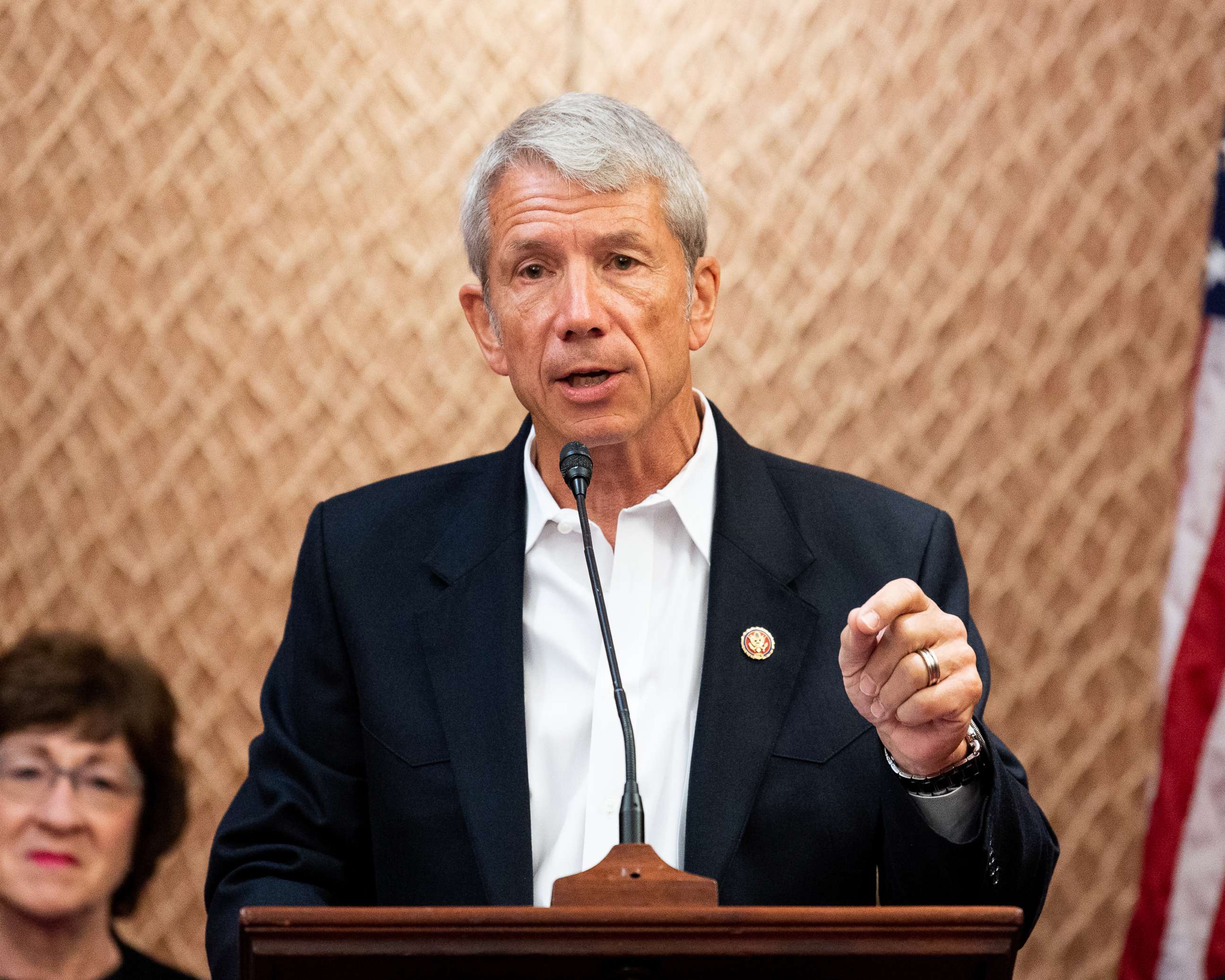Democratic House primaries could foreshadow party's direction
Voters will choose between progressives and moderate candidates.
While much of the focus this midterm cycle has been on statewide races and the momentum behind Republicans amid dismal approval numbers for President Joe Biden, several Democratic House primaries could be emblematic of the direction of the party ahead of November.
In these contentious primary races in North Carolina, Oregon and Pennsylvania, voters will choose between progressive and more moderate candidates. These races have drawn the attention of progressive heavyweights, including Sens. Bernie Sanders and Elizabeth Warren.
In many cases, moderate candidates have been the beneficiaries of millions of dollars in spending by controversial outside groups like Protect Our Future, a PAC funded by a billionaire cryptocurrency boss Sam Bankman-Fried, and the American Israel Public Affairs Committee, a pro-Israel super PAC.
"Money in politics is nothing new, and you've seen outside groups increasingly playing a role in North Carolina and around the country, what feels different this year is just how aggressively they're investing in primaries," said Asher Hildebrand, a professor at Duke University and former chief of staff to outgoing Rep. David Price.
Price's district, North Carolina's 4th Congressional District is a safely blue area which includes a few of the states large research universities. Primary voters there will likely make the deciding choice about who replaces him.
The leading candidates in the crowded Democratic primary are Clay Aiken of "American Idol" fame, Nida Allam, a local lawmaker and the first Muslim woman to hold elected office in the state who is backed by Bernie Sanders and Elizabeth Warren, and Valarie Foushee, a Black state lawmaker widely considered the establishment pick.

Aiken, who previously ran for Congress in 2014, could be the first LGBTQ lawmaker to represent North Carolina if he wins. Political experts in the state consider his chances of coming out on top relatively low despite his high name recognition via his celebrity status.
The aforementioned PACs have poured millions into the race for Foushee, a move some in the state have interpreted as an effort to tamp down on the influence of the party's progressive wing. If Foushee wins, she could be the first Black lawmaker to represent the area in Congress.
Allam is a Medicare-for-all and Green New Deal-supporting progressive who has the approval of members of the so-called "squad" of progressive Democratic congresswomen of color. Should Allam prevail, it could mark a significant progressive victory this cycle in a battleground state.
"I think what we're seeing there are actually two candidates that have pretty similar platforms on most of the issues but the contest has really been framed as one of moderates against progressives," said Sarah Treul a political science professor at the University of North Carolina at Chapel Hill. "You're gonna have a part of the Democratic Party, the more left leaning side, casting votes for Nida and the more moderate wing of the party no doubt casting votes for Foushee."
In Oregon's newly drawn 5th Congressional District, which includes Bend, incumbent Rep. Kurt Schrader has the endorsement of President Joe Biden. While progressive candidate Jamie McLeod-Skinner, an attorney who has mounted previous failed bids for Congress and Oregon Secretary of state, has the backing of most Democratic Party leaders within the district as well as Warren.
Schrader is considered one of the most conservative Democrats in the House and has taken heat from progressives on his vote against Biden's $1.9 trillion coronavirus relief bill and Biden's Build Back Better spending plan.
"We don't always agree, but when it has mattered most, Kurt has been there for me," Biden said in a statement announcing his endorsement.
Schrader and his proponents argue that he can win in the district that now gives Republicans a better shot at winning.

"I've just got a proven track record of actually winning in a very difficult district," said Shrader in an interview with ABC News. "This district got a lot more difficult than the previous district."
But it's a notion Mcleod-Skinner has pushed back on.
"I'm able to win crossover voters. I got the support even now of not just Democrats, but Republicans and independents. And that's what's we're going to need," she told ABC News.
Jack Miller, a political science professor at Portland State University, says McCleod-Skinner's previous runs demonstrate an ability to appeal to Republicans in a district that has become more rural.
"I think that that experience, even though she lost, she got almost 40% of the vote in a supremely strong leaning Republican district. I think it's the best Democrats have done there in 20 years. That is a great sign," said Miller. "What's interesting about her is that she has both that ability to run strong in those rural areas and she is what a lot of progressive Oregonians want."
Sanders stumped for Summer Lee, a progressive running in Pennsylvania's 12th district, another safely Democratic district that includes Pittsburgh.
For much of the race, Lee was considered the frontrunner, but a flood of cash from the American Israel Public Affairs Committee is boosting her more moderate opponent, Steve Irwin, complicating her prospects. If Lee wins, she could be the first Black woman to represent the area.

Sanders sent a letter Monday to Democratic National Committee Chair Jaime Harrison calling for the party to keep super PAC money out of primaries.
"The goal of this billionaire funded effort is to crush the candidacies of a number of progressive women of color who are running for Congress," Sanders wrote. "I am writing to you today to demand that the Democratic National Committee make it clear that super PAC money is not welcome in Democratic primaries."
Historically, midterm elections don't favor the president's party and overall Democrats are bracing for losses. While the balance of power in Congress likely won't hinge on the outcomes of these Democrat-on-Democrat races, they could serve as a bellwether for the state of the party in November and as it approaches the presidential cycle in 2024.




